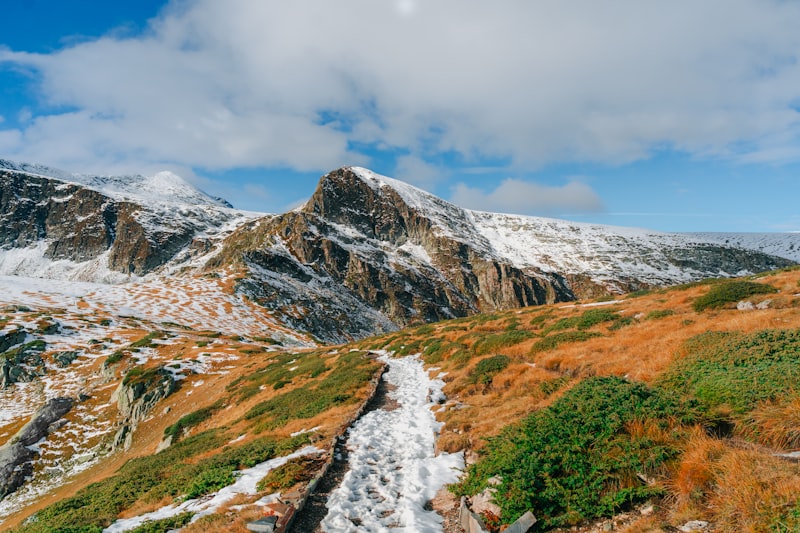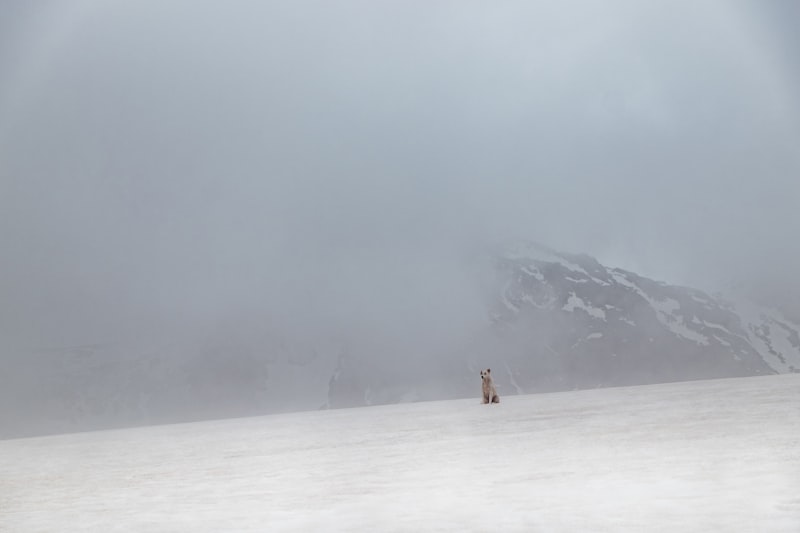Bulgarian is the official language of which country? Have you ever wondered about the origins and significance of Bulgarian? Well, let me enlighten you! Bulgarian is the native tongue of Bulgaria, a captivating country nestled in the southeastern part of Europe. This rich and diverse nation boasts a vibrant history and a unique culture that dates back centuries.
When we think of Bulgaria, we envision majestic landscapes, breathtaking mountain ranges, and stunning Black Sea coastlines. But beyond its natural beauty, Bulgaria holds a distinct linguistic identity. Bulgarian belongs to the Slavic language family, which includes other Eastern European languages like Russian, Ukrainian, and Serbian.
With over 9 million speakers worldwide, Bulgarian stands as one of the most widely spoken Slavic languages. It evolved from Old Bulgarian, also known as Old Church Slavonic, an ancient literary language used during the First Bulgarian Empire in the 9th century.
The development of the Bulgarian language occurred through various historical stages, influenced by neighboring nations and conquerors throughout the centuries. From Byzantine Greek to Ottoman Turkish, these external influences left their mark on the vocabulary and grammar of Bulgarian, enriching its linguistic tapestry.
One remarkable aspect of Bulgarian is its Cyrillic alphabet, which was introduced in the 9th century by two brothers, Cyril and Methodius, who were Byzantine missionaries. This alphabet played a crucial role in preserving the Bulgarian culture and heritage, allowing for the flourishing of literature and education.
Today, Bulgarian serves as a testament to the resilience and tenacity of the Bulgarian people. It embodies their deep-rooted connection to their ancestral land and serves as a vehicle for self-expression, communication, and cultural preservation. Whether it’s in the bustling capital city of Sofia or the picturesque villages tucked away in the countryside, Bulgarian is spoken with pride and passion.
So, the next time you come across the question “Bulgarian is which country?” remember that it belongs to the enchanting nation of Bulgaria. Dive into its linguistic wonders, explore its captivating history, and immerse yourself in the beauty of this remarkable language.
Exploring the Mystery: Unraveling the Enigma of Bulgaria’s Geographic Identity
Bulgaria, a country nestled in the heart of the Balkans, is a land full of mystery and intrigue. Its geographic identity is a true enigma, waiting to be unraveled by those who dare to explore its captivating landscapes. From majestic mountain ranges to picturesque coastline, Bulgaria offers a diverse tapestry of natural wonders that will leave you in awe.
One of Bulgaria’s defining features is the awe-inspiring Balkan Mountains. Stretching across the country like a protective shield, these rugged peaks offer breathtaking vistas and hidden treasures waiting to be discovered. Imagine standing atop the highest peak, feeling the crisp mountain air on your face, and gazing upon a panorama that stretches as far as the eye can see. The Balkan Mountains are not just a geographical feature; they are a symbol of Bulgaria’s resilience and strength.
But Bulgaria’s geographic identity extends beyond its mountains. To the east lies the Black Sea, a shimmering expanse of azure waters that beckons visitors to its sandy shores. Here, you can immerse yourself in the vibrant atmosphere of coastal towns like Varna and Burgas, or find solace in secluded beaches that seem untouched by time. The Black Sea is not just a body of water; it is a gateway to endless possibilities and unforgettable experiences.
Venture further inland, and you’ll encounter the fertile plains of the Thracian Valley. This region is a testament to Bulgaria’s rich agricultural heritage, with vast fields stretching for miles. Picture yourself strolling through sunflower fields, their golden petals swaying in the gentle breeze. The Thracian Valley is not just an expanse of land; it is a living testament to Bulgaria’s connection to the earth.
As you delve deeper into Bulgaria’s geographic identity, you’ll stumble upon hidden gems like the stunning Rila Lakes and the mystical Belogradchik Rocks. Each of these natural wonders tells a story, weaving together elements of history, mythology, and the sheer beauty of the Bulgarian landscape.
Bulgaria’s geographic identity is a multifaceted enigma that invites exploration and captivates the imagination. From the majestic Balkan Mountains to the tranquil Black Sea coast, this country offers a kaleidoscope of landscapes that will leave you in awe. Step into Bulgaria’s embrace and unravel the mystery for yourself.
The Crossroads of Cultures: Discovering the Intriguing Origins of Bulgaria’s National Identity
Bulgaria, a country nestled in the heart of Europe, boasts a national identity that is as diverse as it is intriguing. The crossroads of cultures have shaped Bulgaria’s history and bestowed upon it a unique heritage that continues to captivate visitors from around the world. So, let’s embark on a journey to uncover the fascinating origins of Bulgaria’s national identity.
At the very core of Bulgaria’s heritage lies its ancient Thracian roots. The Thracians, an enigmatic civilization, inhabited the lands of present-day Bulgaria thousands of years ago. Their influence can still be felt today through archaeological discoveries, myths, and legends that have been passed down through generations. The Thracians’ rich heritage acts as a foundation for Bulgaria’s national identity, symbolizing strength, resilience, and a deep connection to the land.

Another crucial milestone in Bulgaria’s history was the arrival of the Slavs in the 7th century. These Eastern European tribes brought with them their language, customs, and traditions, which blended with the existing Thracian culture. This fusion of influences has shaped Bulgaria’s unique cultural tapestry, making it a nation unlike any other.
Centuries later, Bulgaria found itself at a geographical crossroads, caught between the Byzantine Empire to the south and the emerging Western powers to the west. This position exposed Bulgaria to a myriad of external influences, resulting in a vibrant mix of Byzantine, Ottoman, and Western European elements within its culture. The Byzantines left their mark through architecture, art, and religion, while the Ottoman Empire imparted its influence through cuisine, music, and customs. Meanwhile, Western Europe contributed to Bulgaria’s intellectual and artistic development, fostering a spirit of innovation and progress.
As we explore Bulgaria’s national identity, we cannot overlook the impact of its folklore traditions. Passed down through generations via captivating songs, dances, and tales, Bulgarian folklore reflects the people’s joy, struggles, and aspirations. These traditions celebrate the country’s rural roots and preserve its authentic spirit, reminding Bulgarians of their rich cultural heritage.
Bulgaria’s national identity is a tapestry intricately woven with threads from its ancient Thracian origins, the influence of Slavic tribes, the historical interactions with neighboring empires, and the vibrant folklore traditions that have endured through time. This fusion of cultures has created a captivating and unique identity that truly sets Bulgaria apart. So, come and discover the crossroads of cultures in Bulgaria, where history and heritage converge to create a truly enchanting experience.
Unveiling Bulgaria’s Hidden Beauty: A Journey into the Heart of Eastern Europe
Are you ready for a captivating adventure into the heart of Eastern Europe? Join us on a journey to uncover the hidden beauty of Bulgaria, a country that offers an awe-inspiring blend of history, culture, and natural wonders. From enchanting landscapes to ancient treasures, Bulgaria has it all.
Imagine wandering through the picturesque Rhodope Mountains, with their lush green forests and crystal-clear lakes. Take a moment to breathe in the fresh mountain air as you hike along scenic trails, surrounded by breathtaking vistas. It’s a nature lover’s paradise, where tranquility and serenity embrace your senses.
But Bulgaria is not only about its stunning landscapes; it’s also a place where history comes alive. Explore the ancient city of Plovdiv, one of the oldest continuously inhabited cities in Europe. Marvel at the well-preserved Roman Amphitheater and wander through the narrow cobbled streets of the Old Town, where you’ll find architectural treasures from different historical periods.
As you delve deeper into Bulgaria’s past, don’t miss the opportunity to visit Veliko Tarnovo, the medieval capital of the Second Bulgarian Empire. Climb up to Tsarevets Fortress, where you can imagine the grandeur of the past and enjoy panoramic views of the city. In Veliko Tarnovo, history unfolds before your eyes, revealing tales of bravery and triumph.
Bulgaria is also home to a rich cultural heritage that will captivate your soul. Sofia, the capital city, boasts an intriguing mix of architectural styles, from the Byzantine-inspired Alexander Nevsky Cathedral to the modernist National Palace of Culture. Immerse yourself in the vibrant atmosphere of Sofia’s bustling streets, where traditional markets coexist with trendy cafes and art galleries.
If you’re seeking a coastal retreat, head to the Black Sea coast, where golden sandy beaches stretch as far as the eye can see. Enjoy a leisurely swim in the azure waters or soak up the sun’s rays while sipping a refreshing cocktail. The coastal towns of Nessebar and Sozopol will transport you back in time with their ancient ruins and charming old quarters.
Unveiling Bulgaria’s hidden beauty is like unwrapping a precious gift, each layer revealing something more extraordinary than the last. Whether you’re an adventure enthusiast, a history buff, or a culture seeker, this Eastern European gem has something to offer everyone. Embark on this journey into the heart of Bulgaria, and let its wonders leave you breathless.
From Thracians to Modernity: Tracing Bulgaria’s Path through History
Have you ever wondered about the captivating history of Bulgaria? Join me on an exciting journey through time as we explore the path this remarkable country has taken, from ancient times to the modern era. Let’s delve into the rich tapestry of Bulgaria’s past and uncover the hidden gems that shaped its present.
Our journey begins with the ancient Thracians, a mysterious civilization that inhabited these lands over 3,000 years ago. Known for their advanced craftsmanship and distinctive culture, the Thracians left behind a legacy that still mystifies historians today. From intricate golden treasures to mesmerizing burial rituals, their influence can be felt throughout Bulgaria.
As centuries passed, Bulgaria experienced various waves of conquest and assimilation. The Roman Empire left its indelible mark, constructing grand cities like Serdica (present-day Sofia) and establishing a solid infrastructure that would endure for centuries. The Byzantine Empire also played a pivotal role, shaping Bulgarian identity and introducing Eastern Orthodox Christianity as the dominant religion.
One cannot discuss Bulgaria’s history without mentioning the medieval period and the mighty Bulgarian Empire. Under Tsar Simeon the Great, Bulgaria flourished, reaching its zenith in the 10th century. With its capital in Preslav, the empire thrived culturally, intellectually, and economically, making significant contributions to the region.
However, Bulgaria’s path took a dramatic turn with the arrival of the Ottoman Empire in the late 14th century. Enduring nearly five centuries of Ottoman rule brought immense challenges and stifled Bulgarian independence. Yet, despite this oppressive period, the Bulgarian spirit persisted, preserved through folk traditions, resilience, and a longing for liberation.
Fast forward to the late 19th century, when Bulgaria finally emerged from the shadows of the Ottoman Empire. The country regained its sovereignty and embarked on a transformative journey towards modernity. Industrialization, urbanization, and political reforms shaped the nation’s destiny, setting the stage for Bulgaria’s role in the tumultuous 20th century.
From the devastation of World War II to the grip of communist rule, Bulgaria experienced its fair share of hardships. However, like a phoenix rising from the ashes, the country embraced democracy and embarked on a path of progress and growth. Today, Bulgaria stands proudly as a member of the European Union, combining its rich history with a vibrant present.

Bulgaria’s journey through history is a testament to the resilience and spirit of its people. From the enigmatic Thracians to the struggles of Ottoman rule and the challenges of modernity, this country has weathered storms and emerged stronger. Prepare to be captivated as you explore Bulgaria’s past and witness the remarkable tapestry that has shaped this fascinating nation.